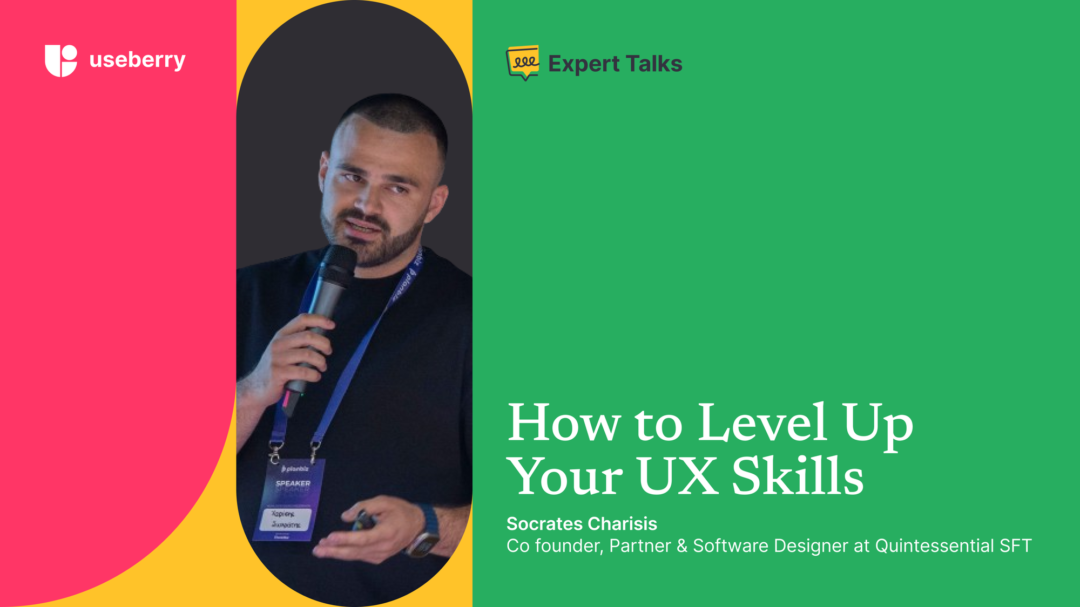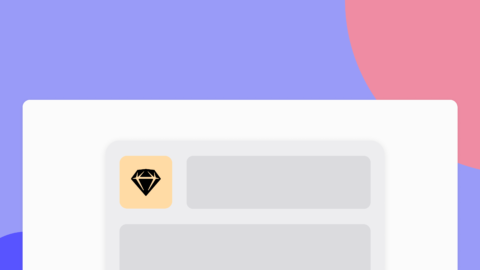Socrates Charisis left his computer science studies that started in 2013 and faced early start-up challenges before co-founding Quintessential in 2018, a 30 people digital product agency that makes software. There, he leads all design initiatives. He also runs the Friends of Figma Athens Group since 2018 and holds a UXMC certification from Nielsen Norman. Additionally, Socrates has been mentoring UX undergrads at DesignLab since 2021.
Fun fact, he believes that software designers should start leaning towards code.
Let’s get to know him!
Design Journey: A Self-Taught Designer’s Path to UX Excellence
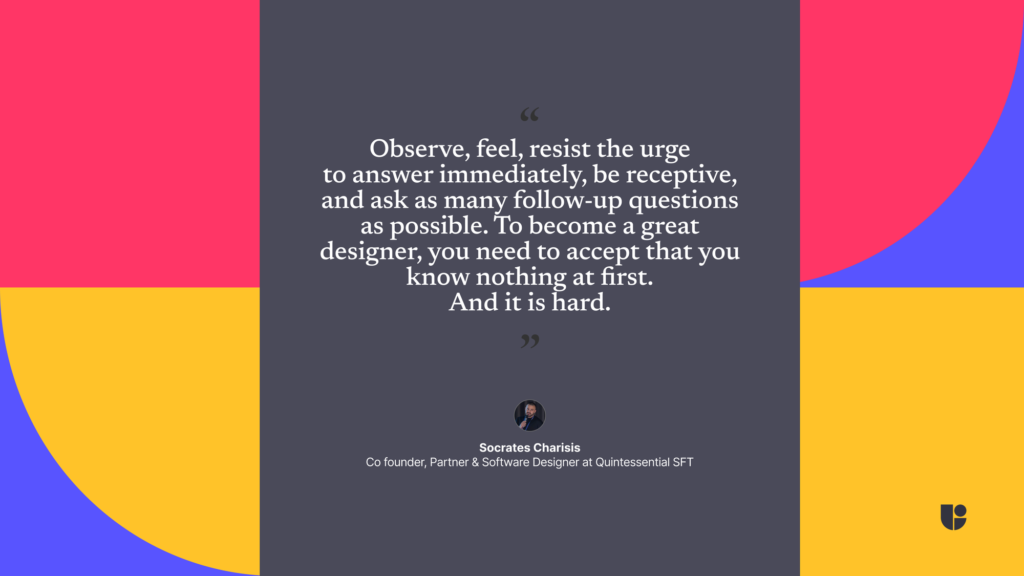
What pivotal moments in your education or early career steered you towards a specialization in UX?
I just wasn’t good at code. Seriously, ever since I was a kid, I’ve been fascinated by computers, loved playing around with Adobe’s creative tools and learning more about programming. I started using Photoshop when I was pretty young and got my hands on very basic JavaScript and front-end stuff. This interest got me to study computer science, where I discovered more about human-computer interaction. That thing really grabbed my attention and made me want to dive deeper into the field. But at that point, learning more about UX within my course curriculum was really difficult. So, fueled by my passion for design and a desire to dive into the startup world, I chose to specialize in UX. I set out to showcase my designs and try to make my mark. That’s where my journey really started.
How has your experience as a self-taught UX designer influenced the way you understand what users need?
As a self-taught designer, you inevitably go through all the wrong things first. Relentless trial and error in the beginning helped me understand that working with users is a journey of surprise, self-control, and observation. Observe, feel, resist the urge to answer immediately, be receptive, and ask as many follow-up questions as possible. To become a great designer, you need to accept that you know nothing at first. And it is hard. However, this mindset is crucial until you enter the corporate world. There, understanding users is not enough; you also need to win over stakeholders and put in the hard work of solving user problems. My experience as a self-taught designer taught me to seek accountability, take ownership, steer the boat, and gain people’s trust. Ultimately, stakeholders are “users” too.
How has your role as a Community Advocate for Friends of Figma Athens influenced your journey as a UX designer? What opportunities has it provided for growth and collaboration within the design community?
Community wise: I believe we’re learning a lot from the Friends of Figma events and workshops. So much knowledge, so many good vibes and everyone is willing to share their stories and expertise. Designers, Developers, Product people need these things. 2024 is going to be the year with the most meetups and workshops. We’re even dropping a CONFIG Watch Party in June 26th. Finally, the FOF Athens is a great way to connect with fellow peers, find new opportunities and collaborate with the brightest minds out there. From Illustrators to Interaction masters, it a wonderful source of networking.
Personally: Serving as a Community Advocate, or a “User Group Leader” as it is called these days is truly remarkable. It taught me not to gatekeep in the first place and I feel extremely lucky for all the talent I have met and all the professionals I’ve taken inspiration from. From connecting and getting to meet with the folks at Figma to having fun with excited interns on a post work Tuesday meetup, it’s such a privilege. It’s a great way to find mentors and talent out there.
Design Wisdom: How to Avoid Becoming Obsolete in the Field of UX
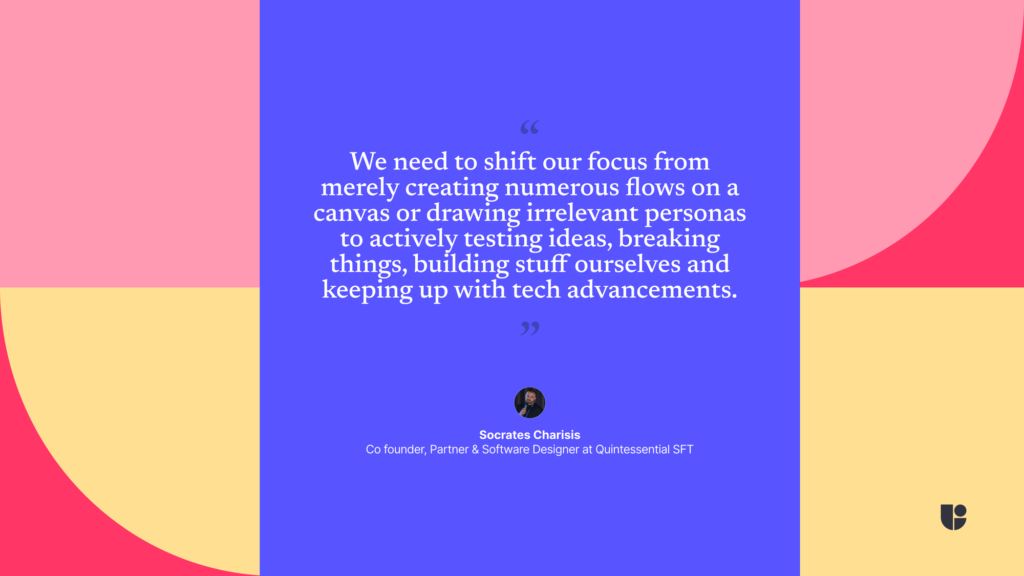
As a seasoned UX Designer, what do you see as the most pressing challenge in UX today, how does it differ from the challenges of the past?
Don’t get obsolete, outdated. As a profession, as a meaning, as a way of doing things. It’s different now because technology is going mad fast but we still keep referencing the Design of Everyday things that was first published in 1988 (myself included). Or the book “Don’t make me thing”. Don’t get me wrong, I love these, and there’s great knowledge in there but for UX Design as a profession to make sense in the few years, reskilling and upskilling are mandatory. I want a future with more designer founders and design engineers. People in vital positions that can impact things and steer the ship because they’re looking for brutal user feedback and engineering mastery both at the same time. People who seek to connect with code, hardware, not just draw rectangles. That means we need to shift our focus from merely creating numerous flows on a canvas or drawing irrelevant personas to actively testing ideas, breaking things, building stuff ourselves and keeping up with tech advancements. Tinker, as much as you can.
What strategies have you found most effective in navigating complex research challenges throughout your career in UX?
In my journey, the most complex part of any research project has always been gaining buy-in from the “business” folks. As an agency, we’re on the front lines, trying to explain things. Stakeholder involvement and earning their trust are critical from the early stages. A fun way to achieve this is to first hit them with a metaphorical axe: show them how much they’re bleeding. Then, let them know what you’re going to do about it, how you’re going to do it, and how many people you’re going to onboard for this research journey. This strategy breaks down walls and gives you the time to work with users and data to find a solution.
Finally, always be flexible. Requirements might change, so you must cultivate the skill of adaptability while conducting research. Never rely too heavily on specific sources of data.
Are there any emerging UX trends that excite or concern you?
I’m waiting for a few things.
I am expecting real Generative UI in the following years or a solid trustworthy co-pilot for UI and prototyping, so we can focus more on solving actual problems and meeting people’s needs. Galileo AI is a promising one.
Another point of interest to me are initiatives like Neuralink and brain-computer interfaces in general. It might take many years, but eventually—perhaps half a century from now—I believe we won’t only be using phones or headsets. Instead, we’ll rely on our brains and some form of under-skin technology. That’s future UX and it’s still early. One thing that excites me is the growth of the field. With advancements in AI, entering the UX field will be easier than ever, making it accessible to more people. However, this also means that the expectations bar will rise. To be truly exceptional and excel in the field, you’ll need to put in the hard work and master your craft. One concern: Tech goes so fast but accessibility is not being discussed. I’m wondering how an immersive, colorful future will also be available and intuitive for people with disabilities. That needs to be addressed. This is also why brain-computer interfaces are interesting to me in the first place.
What golden piece of advice would you give to those just embarking on their UX journey?
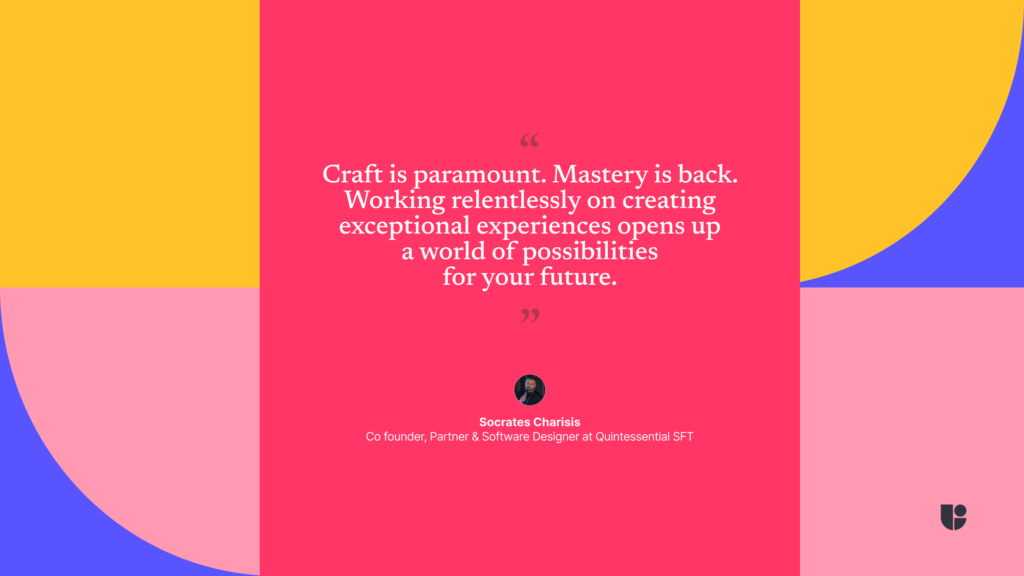
Craft is paramount. Mastery is back. Working relentlessly on creating exceptional experiences opens up a world of possibilities for your future. Additionally, to master your craft, extensively copying in the beginning is crucial. It helps you immerse yourself in the UX world, learn its rules, and eventually, after a few years, you’ll find your unique identity.
AI’s influence is growing in UX design. Has AI impacted your workflow or decisions? What challenges do you foresee in integrating AI into UX research?
We run a lot of workshops at Quintessential. Like, a lot. Many hours in a room or on a Teams call. From discovery to ideation sessions to design sprints. AI helps us with notetaking, transcripts and summaries usually through custom agents we build for these purposes. That enables us to work faster when it comes to requirement analysis, feature roadmaps, client quotes, documentation and planning. That’s something we do almost daily. Also, GitHub’s Co-Pilot enables our devs to write better code, faster.
Getting the Most from Useberry: Unmoderated Usability Testing Makes The Difference
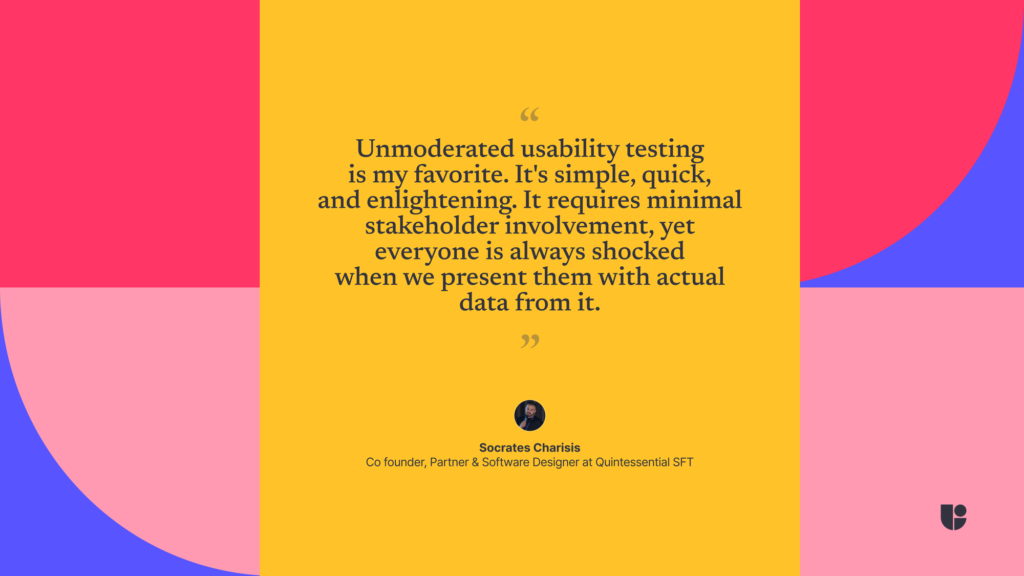
Could you describe a situation where Useberry’s tools made a significant difference in any of your projects?
Last year, we embarked on a mission to completely redesign the Pharmacy295 e-shop. We used Figma and collaborated closely with the developers and stakeholders. Useberry was instrumental in identifying numerous usability issues in both the old and redesigned versions. The unmoderated testing we conducted early on in the redesigned cart and checkout pages helped us avoid falling into the trap of beautiful UI elements that ultimately made no sense for users. Watching users interact with your freshly designed solution and encountering difficulties or misunderstandings is both an enlightening and fascinating experience.
Could you share which Useberry feature is a must for you, and why?
Unmoderated usability testing is my favorite. It’s simple, quick, and enlightening. It requires minimal stakeholder involvement, yet everyone is always shocked when we present them with actual data from it.
For those new to Useberry, what advice or tips would you offer to maximize the benefits of the platform?
Start small, test the waters with a pilot project. See how it goes once you’re confident, pitch it to your team, or present a report on your study. For example, If you’re a designer responsible for designing a flow, dive in—create a study, make a Figma prototype, test it with your friends, and analyze the findings to see how it performs.
UX in Greece: Growth and Challenges
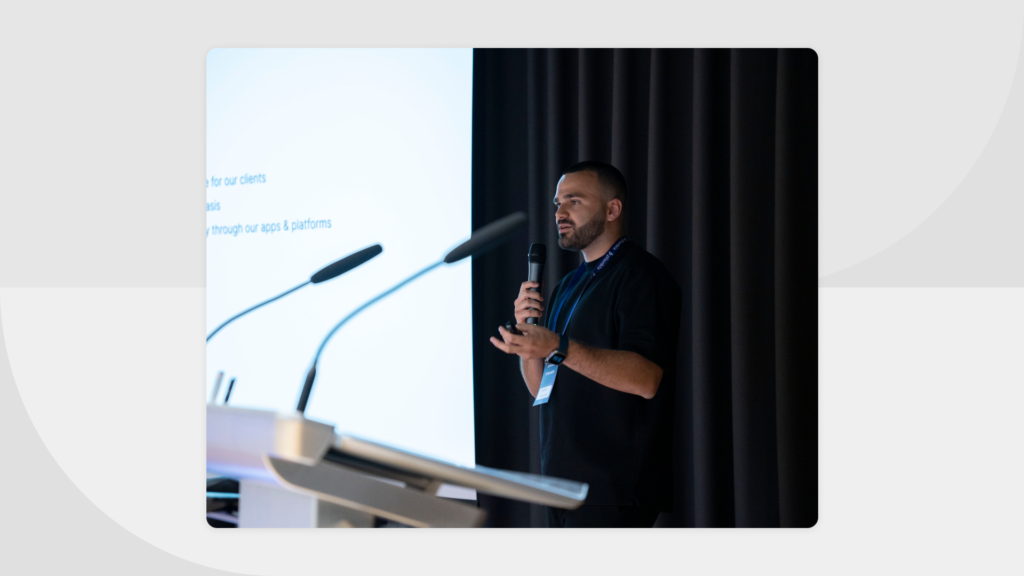
How would you describe the current state of the UX industry in Greece, especially in comparison to global trends?
UX is now more popular than ever in Greece but I think it still lacks the excitement, the creativity, the fun side of things that the industry in the US is showing. UX is not a boring nor an indifferent job. It is the way something works in the first place. There are a few factors that are holding us back and this has to do with salaries, market size and old-school ways of doing things. I remember, 10 years ago, in software, when we started, many thought that UX Design is not work that should get paid but it is work that helps seal the deal for the development. It is different now.
Fun fact: I know a couple of organizations that even have a dedicated design systems team due to their size and this is definitely something new and promising for our market.
UX Fun Round
Could you share an unexpected source of inspiration that has impacted your approach to UX?
Not sure I have an unexpected source of inspo. I grew up with Dribbble. But seriously, I’d say video games. Does that count?
Given no constraints, what would be your dream UX project to work on and why?
From easy to bananas:
Automotive: There’s immense potential in designing and developing software for cars. Building UI for a company like Porsche or Tesla could be fun.
Work on a project that combines hardware engineering, physical and industrial design, and UX/UI. My dream project would be contributing to the next Apple Watch, Mac, or iPad.
Work on the interface of a spacecraft or the ISS. Imagine astronauts triggering the launch of a spacecraft from a UI designed in Figma. That would be bananas!
Conclusion
“To become a great designer, you need to accept that you know nothing at first.” Socrates’ path from a self-taught beginner to a UX leader at Quintessential and Friends of Figma Athens exemplifies this mindset. And we at Useberry are excited to support designers like him, by offering an all-in-one platform that helps turn creative ideas into real, user-friendly designs.
Ready to see Useberry in action?
Start today, it’s free.


